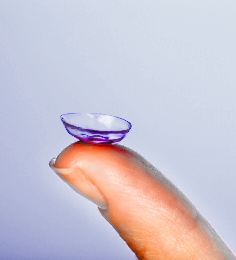High-tech lenses take step ahead
 Local experts are working on ways to embed micro-electronics in contact lenses.
Local experts are working on ways to embed micro-electronics in contact lenses.
Australian scientists have successfully completed ‘proof of concept’ research on a thin polymer film coating that conducts electricity on a contact lens, which could be used to build miniature electrical circuits that can be safely attached to a person’s body.
The project was undertaken at the University of South Australia’s Future Industries Institute (FII) hub.
FII researcher Associate Professor Drew Evans says the technology could provide one of the safest methods to bring people and their smart devices closer together.
“We have always known that our film coating technologies had potential for many applications and now we have taken that a step further by proving that we can make biocompatible, conducting polymers at the nanoscale and grow them directly on a contact lens,” Assoc Prof Evans said.
“The fluids in the eye provide markers of a person's health, so our goal now is to build electrical sensors on a contact lens from our polymers to sense in real time a person's well-being.
“The next big leap is to develop complementary technologies to read the information transmitted by the conducting polymers.
“What is really significant is that the materials we are developing are not only safe but also have the potential for a range of personalised health monitoring applications that could make life simpler for people struggling with chronic health problems.”
The complete proof of concept research results have recently been published in ACS Applied Materials and Interfaces.







 Print
Print